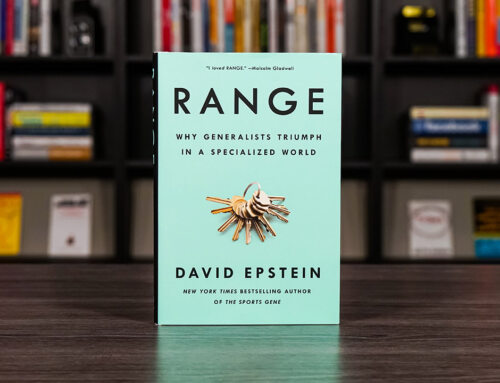One of my favourite authors – the late Timothy Keller – said in one of his books that Victor Frankl’s Man’s Search for Meaning was one of the most important reads of modern times.
Frankl was a psychiatrist, and while the book revolves around his experiences in Auschwitz and other concentration camps, it also makes specific note of psychotherapeutic techniques and practice. This made it particularly relevant for me as a new therapist; but as Keller implied, it really is a timeless piece with something for everyone.
Weathering the Storm of Auschwitz
Here’s a cool premise for a book: A psychiatrist is captured and learns how to survive in a concentration camp.
Meaning is the first-person perspective of that book. Frankl, imprisoned with fellow Jews, many of them also professionals in his community, works with intelligence and desperation to survive the unpredictable, harsh conditions of the camp. He makes observations about those who in fact did survive; how did they do it? What was true of them and how they lived?
You might think no one had a choice in the matter of survival. Either you were gassed or shot or you lucked out. But Frankl notes that many who died simply lost the will to live – perhaps they even wanted to die, given the horrid conditions and the apparent hopelessness.
He also gives meaningful, considerate reflection about the Nazis at the camp. Some held compassion for Frankl and his people; others epitomized abuse and tyranny. He doesn’t complain; he simply wonders about what leads us to compassion over hatred, or vice versa.
And of course, Frankl applies his clinical and spiritual minds to the camp experience, wrestling all the while with the question of meaning. I won’t spoil this discussion at all, but I will say that Frankl’s answers even as a religious Jew will surprise some.
The raw details of the stories – unique story elements that only a survivor could have known – help bring the world to life, while at the same time making you want to turn away and wish it never happened.
It’s not a happy book, not always. And yet it manages to be practical and optimistic, even spiritual. Frankl is brilliant and thoughtful, winsome and heartfelt with his words.
Literary Bedside Manner
Yes, there is some basic psychology discussion here. Frankl is a clinician and therefore reflects on the psychotherapeutic value or meaning of some of the events of his imprisonment. He applies what he’s learning to the psychological world, and clinicians will of course appreciate this more than the layperson. However, the bulk of the book considers more generally the human condition. What drives us to survive? What gives us a sense of meaning? How do we stay humane in the face of terrible, dehumanizing evil?
The book is well-written and accessible given its emotionally dark content. Even the clinical commentary reads easily and engagingly, and it’s only about 100 pages. I think everyone should give it a read at some point.
If Frankl were still alive, I suspect he would have much to say about our current mental health climate, and would strongly advocate for his coined “logotherapy” to help treat it. We have so much in our world to be grateful for, and so much freedom to pick and choose how we live and what we live for that we seem to have a harder time than ever actually establishing or understanding what in fact we live for. The irony would not be lost on him.
Even if you have no interest in mental health, you’ll be able to appreciate the story, meaning, and lessons of Frankl’s imprisonment. It’s short, concise, and packed with powerful storytelling and potent insight into the human creature.






